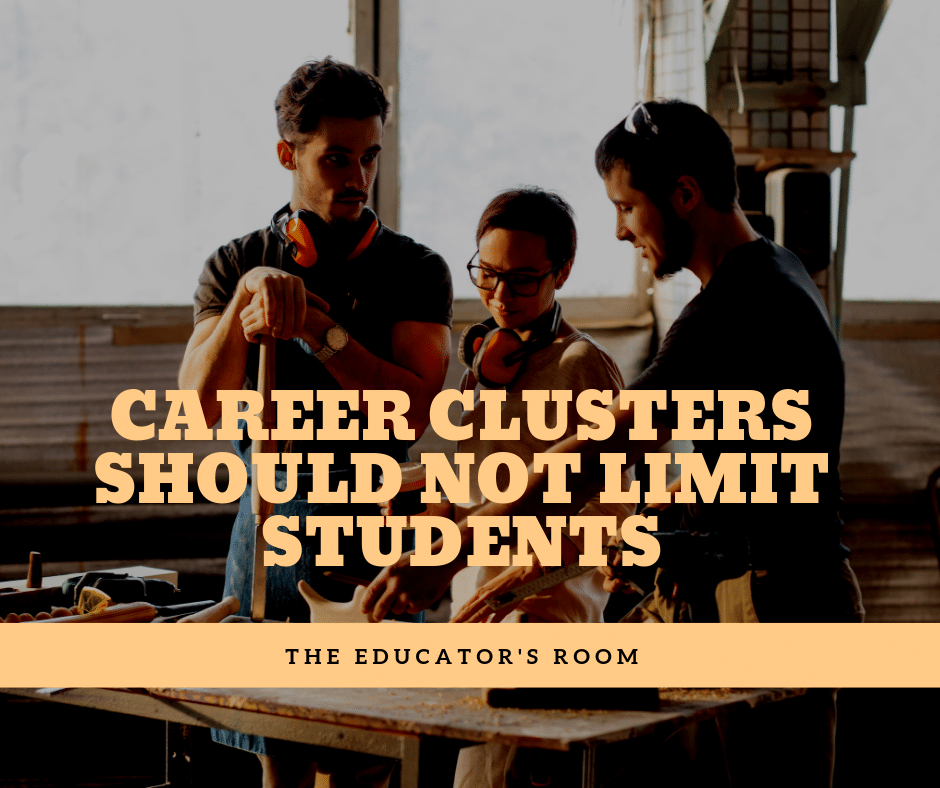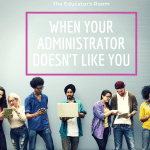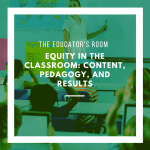Like most people who attended school in the ’90s and early 2000s, I fully brought into the college = success, no college = failure ideology. I came to teaching as an aide at the age of 22 and expected to encourage students that they must attend college, no other paths. I learned a hard lesson that year. When talking about careers with my students, one said: “I want to manage a Taco Bell.” I bit my tongue to keep myself from saying, “No, you are too good for that,” and instead sought the advice of an older and wiser teacher.
Never tell a student their dream is “just” anything. They are not “just” Taco Bell managers, not “just” mechanics, not “just” plumbers. That student’s mom moved here speaking no English and got a job at Taco Bell, and she has worked her way up to manager. He is proud of her. Don’t tear that down.
This blew my mind. I never knew I looked down on people who worked in different industries–I always tipped well! I was polite to people behind counters! But, perhaps, in the back of my mind, my ego and privilege were there, all the time.
When I was in school, the common phrase was “when you go to college,” not “if.” Parents were told their children would never be successful without a four-year degree, and trust in the school system. Teachers were encouraged to always steer young people towards academia, not trades or, god forbid, the service industry. We bragged about college acceptance rates at high schools. Colleges boomed, and as a result, college prices skyrocketed. If everyone has to go, they may as well make as much money off of it as possible.
[bctt tweet=”Colleges boomed, and as a result, college prices skyrocketed.” username=””]
The exploding price of higher education and the trend towards empathy in education should have calmed this down; but instead, things have amplified.
As we near 2020, many states have adopted a Career Cluster program created for national use by Advance CTE: State Leaders Learning to Work. This program has 16 career clusters, which can be seen here. If you dig further, each of those career clusters has not just university-based options, but trades, arts, and so forth. They are listed under the same cluster instead of separately, and this makes it clear that they are of equal value.
In my opinion, while no system is perfect, this program provides excellent guidelines for young people. They can look at the pathways, find out what interests them, and learn what the requirements are for success. Students are not intended to be limited by these pathways and can test out a variety of them before graduation.
Unfortunately, this is not how it has been adopted by every state and/or district. Many places are still focused on numbers being accepted to college, so they disregard the trades and other “less desirable” fields. Students as young as 11 are shown limited versions of the pathways and told “these are the options you have. These are the only options you have. Start planning now.” We have college and career readiness programs beginning as early as elementary school, focusing not on what students need to know now, social skills, or on a varied general education, but simply on how to get them through their 12 years of schooling and out into college posthaste.
This is wrong.
Let’s go back to looking at how states have adopted this pathway program. I am going to focus on Kansas, as this is my home state and one I know the best. I highly encourage you to look at your own state; we are absolutely not the only state that has made these choices. I will also focus on the two that matter to me the most: Education and the Arts.
Under the “Education & Training” cluster, the national groupings include Administration & Administrative Support, Professional Support Services, and Teaching/Training. As you dig deeper, it includes not just teachers and principals, but school secretaries and parent educators. When we look at Kansas, we have only included Teaching/Training and eliminated the others.
As for the Arts, A/V Technology & Communications cluster, the national standards include six subcategories, including visual arts and performing arts. These allow students the freedom to become artists and actors, as well as becoming directors of institutions in those fields. Kansas has totally eliminated all categories except Digital Media and Graphic Design, both of which require college degrees, often advanced ones. When building our district’s new curriculum, my team and I discovered this discrepancy and contacted our state government, asking about this oversight. We truly believed it was a simple error that could be corrected.
Instead, we were told that performing arts was not considered a real career in Kansas. We were told that because of the number of people working in related fields, they didn’t consider it to make a focus. They did not mention the fact that Kansas became the first state without an arts agency in 2011, so many of our artists sought their fortunes elsewhere, despite being educated right here.
We did not tell our students this. They did not need to know; it would only hurt them. We kept on teaching, telling them how important it was to learn performance and interpersonal skills, and told them acting, stage management, etc. were all viable careers. We never told them it would be easy and they would all be rich and famous, but that there was always hope through hard work.
Then, the students were given a handout of career clusters. Several approached me, asking where performing arts was. What was I supposed to tell them? I never lie to my students. I told them our field includes a real set of careers, whether or not it was on that infographic.
“But, if it’s not on here, I won’t be allowed to focus on it at all in high school. They will make me pick one of the other ones.” The looks of despair on their faces are forever imprinted on my mind. They were told that the area they loved most was not important, by a piece of paper that was created by people who had never spoken to them.
My students who were interested in becoming secretaries, mechanics, plumbers, and construction workers were told the same. Only people who make bad choices do these jobs. These are not real careers. They are then often encouraged, if not forced, to choose one of the clusters on the infographic to focus on in high school. Like our parents were told before us, guardians are being told this is the best and only way for their children to reach their potential.
We make jokes about adults living in their parents’ homes, some with jobs, some without. We need to accept some responsibility for that. We are forcing children–children!–to choose a career path that includes college from a very young age, making them feel like they have failed if they do not choose one of our preferred paths, and causing them to rack up student loan debts that won’t let them move away from home and start their independent lives in a field they love.
Trades are important. Arts are important. Service industries are important. There is no job that students are “too good for.” We need to stop telling kids their passions and, frankly, skills that do not require four-year degrees are less-than. We would not tell a student she is less-than for being a girl; we would not tell a short student they are less valuable than a tall one. Passions and skills are essential to a person’s identity, as much as biology is. We need to stop teaching young people that it is okay to look down on people who have chosen those paths, because that is exactly what we are doing, even if we don’t say those exact words.
We need to stop looking at our students as reflections of our own successes or perceived “failures” and look at them as individuals who have talents to offer in any field they choose.
Also, tip your servers well.







Hooray, Sarah, for writing such a perceptive article. I especially appreciate your last sentence, as it drives home the mentality that causes this problem. I hope those who work with minorities and immigrant families, as I have, will realize the disservice we do by harping on college as the only road to success.
I enjoyed reading your article. I have always believed no educator should ever kill a student’s dream. Develop relationships with them in order to guide them without one’s personal biases and privileges. Middle schoolers will teach us lessons no other level can!